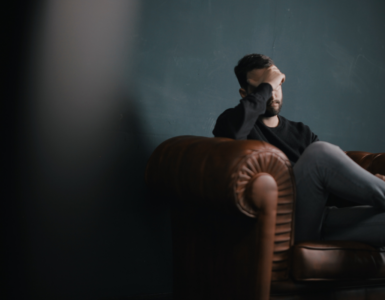Unhealthy relationships can have devastating effects on your health, happiness, and general well-being. While some unhealthy relationships are apparent, some could be far more subtle and difficult to identify. Even though no relationship is flawless, detecting an unhealthy relationship and knowing what to do is crucial.
This article examines some of the most typical signs of an unhealthy relationship and how to tell if you’re in one. You will also discover how to restore your relationship and when to seek professional help.
Habits Of Unhealthy Relationships
1. Control
In toxic relationships, one person may try to dominate the other through manipulation. Some people go to great lengths to keep an eye on the other person and restrict them from doing things or traveling to certain areas. Controlling behavior can also entail isolating a person from family and friends and restricting their financial access.
2. Lack of Trust
Unhealthy relationships are usually associated with a lack of trust. You may feel pressured to conceal information from your partner or suspect that they are hiding information from you. Self-disclosure is a vital part of a relationship’s trust-building process.
As the connection progresses and deepens, you’ll begin to share more personal details about yourself. However, people are less willing to share their feelings, ideas, and experiences with others if they don’t trust them.
3. Disrespect
In toxic relationships, disrespect may happen in a variety of ways. It might also indicate that someone is inconsiderate of the other person. In other instances, it might involve openly criticizing or making fun of other person’s ideas or hobbies. This disregard can frequently feel like rejection, resulting in a wide range of emotions such as hurt feelings, shame, sorrow, sadness, humiliation, and social anxiety.
4. Ineffective Communication
Open and honest communication between partners makes a good relationship. Ineffective communication is a common trait of unhealthy relationships. For instance, avoiding tough subjects, being defensive, expecting the other person to be able to read your mind and not listening to the other person, and
Solutions To Unhealthy Relationships

Relationships give support for both physical and mental wellness. According to research, healthy relationships can improve your life by decreasing your chance of death and protecting you from loneliness and isolation.
Therefore, it is critical to take measures to protect yourself from people who have the potential to be toxic. If you feel you are in an unhealthy relationship, take the following actions to correct the situation:
1. Decide If The Relationship Is Fixable
The first step is to check if you can repair the toxic relationship. It is vital to ensure that both sides are willing to cooperate in making the relationship work and move ahead in a healthy way for both persons involved. When one person refuses to modify their toxic conduct, the relationship is unlikely to be saved.
2. Maintain Mutual Dependence
Interdependent people appreciate the benefits of being able to turn to their relationship when they need help while still maintaining a sense of self-worth without their partner and their relationship. When both partners in a relationship aim for interdependence, they can establish a balance to support their partner’s needs while avoiding becoming dependent on each other.
3. Build A Healthy Connection
Building a good connection with your partner is vital to resolving an unhealthy relationship. Once you’ve identified the toxic habits that have harmed your relationship, it’s essential that you work together to overcome them and create a better, more supportive connection.
When To Seek Help
While there are things you can do to improve your relationship on your own, you may find sometimes find it helpful to seek the assistance of a professional therapist. Couples counseling treats both collective and individual concerns in a relationship.
A therapist, for example, can assist in the treatment of underlying mental health issues that may be negatively impacting the way individuals react to one another in a relationship. Additionally, therapists can help people with conflicting expectations of what they intend to achieve from a relationship.
When To End An Unhealthy Relationship
Relationships that aren’t mutually beneficial should not be continued. If you’ve done everything you can, but the other person still isn’t prepared to change or lend a hand, it’s probably time to cut ties and put your energy into developing connections with healthier and more helpful people.
If the other person shows no desire to modify their behavior or the situation involves abuse, it is usually in your best benefit to end the relationship. This is especially true if the other person is abusing their power.
In Summary
Every relationship is unique, and none of them is excellent all of the time. Everyone has days when they are exhausted, and it is natural for those attitudes to flow over into their relationships. However, it is necessary to constantly remind yourself that you deserve to be in a relationship where you feel healthy, supported, and happy.
You deserve to be in relationships with individuals that care about you and your goals. If you feel you are in an unhealthy relationship, examine its influence on your life and decide whether you can resolve these concerns or whether it is time to terminate the relationship.
Visit our Lifestyle section to learn about new ways to improve your quality of life.












